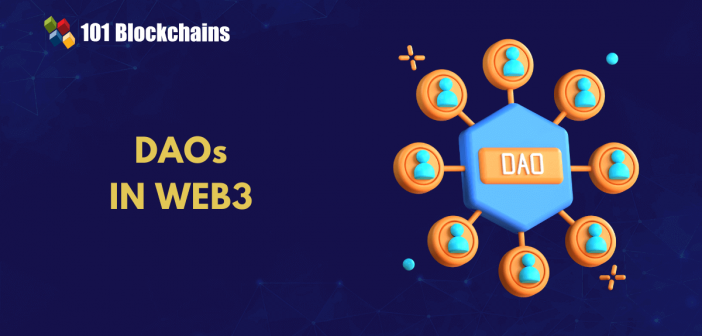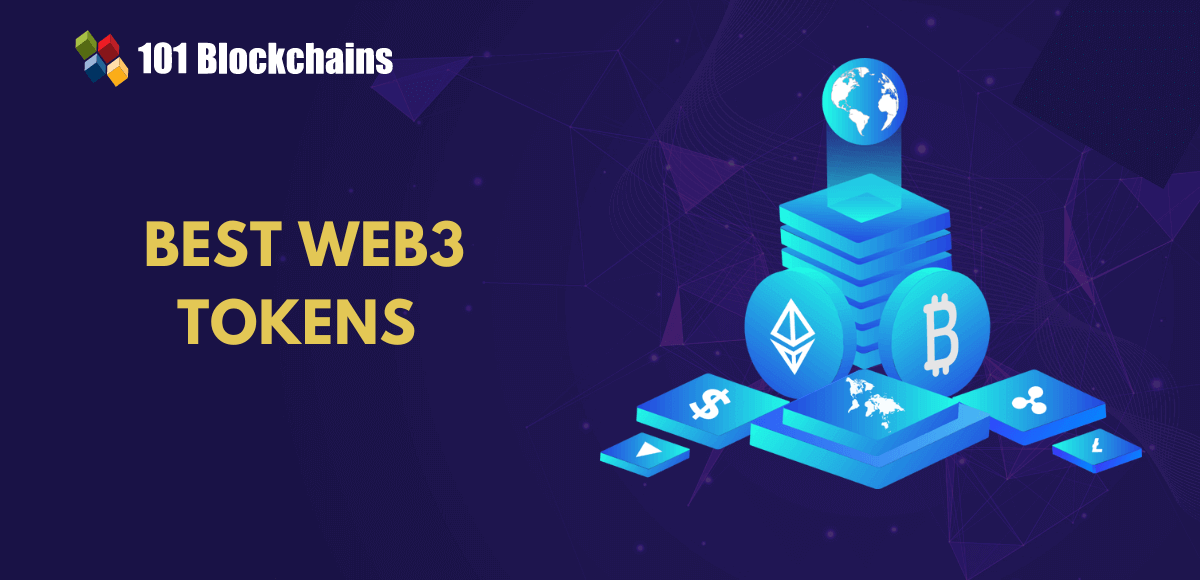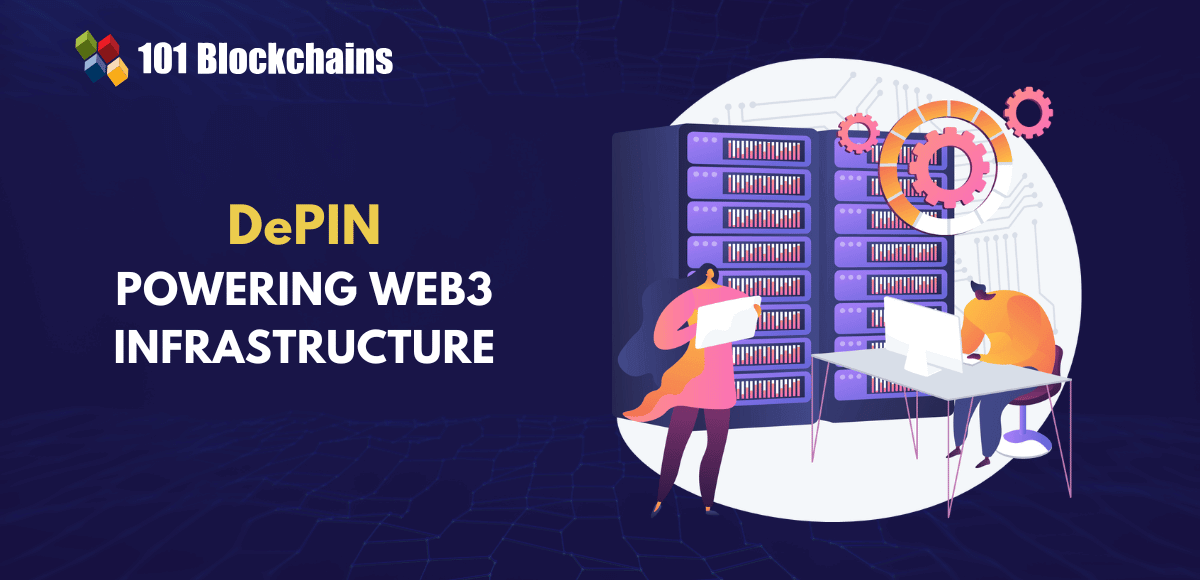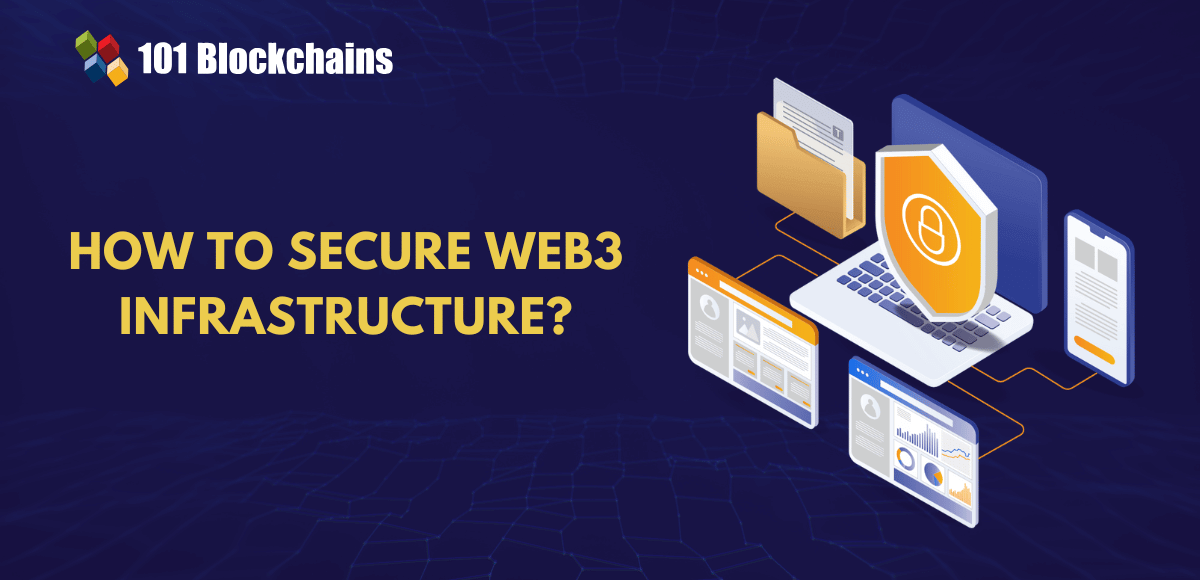Learn how blockchain truly works, master key definitions, and uncover what makes smart contracts so "smart." Dive into the fundamentals, gain valuable insights, and start your blockchain journey today!

- Web3
Georgia Weston
- on September 02, 2024
The Importance of DAOs in Web3
Decentralized Autonomous Organizations (DAOs) is a groundbreaking concept in Web3 space. The emergence of DAOs has gained high popularity within a short span of time. It basically allows the transition from the traditional decision-making process which is centralized in nature. Since DAO works on the principles of shared governance and inclusivity, decentralization is ensured.
Many believe that DAO is the next big thing in web3. In the rapidly evolving context of the world wide web, DAO serves as the right move towards decentralization. The chief aim of decentralized autonomous organization in web3 is to develop a new model that supports the organization and coordination of activities in a decentralized manner. Let us learn about the concept of DAOs and explore its importance in the evolving Web3 arena.
An insight into DAOs
A DAO is also known as ‘Decentralized Autonomous Organizations.’ In recent times DAO has come into existence as an innovative organizational structure. It is different from the traditional organizational structure which is based on centralization. DAO in web3 can function without the need for a central governing body. Hence it relies on blockchain technology as well as smart contracts for the purpose of making decisions. Due to their capabilities DAOs have been posing a challenge for conventional structures that work by adopting centralization principles.
While answering the question – ‘What is DAO in web3?’ It is essential to bear in mind that they are blockchain-enabled organizations. That’s not all! A key feature of DAO that makes it unique is that it is entirely decentralized. This is because a democratic management structure is in place.
The transactions as well as decisions that exist on the blockchain network are visible to the whole public. The inspiration for the DAO concept comes from the same place as digital currencies. The main intention is to overcome the hurdles that arise due to the adoption of centralized control. Today DAO has been identified as a novel concept that adopts the idea of decentralization in the web3 domain.
Enroll now in the DAO Fundamentals Course to develop fluent knowledge of the DAO ecosystem and best practices for participants.
Significance of DAOs in Web3
Web3 is the third generation of the world wide web. It lays high emphasis on concepts such as user-centricity as well as the empowerment of individuals. It acts as the perfect ecosystem that supports Decentralized Autonomous Organizations. The decentralized attribute of web3 perfectly matches the core principles of DAOs.
DAO in web3 is full of new possibilities because it ensures that decisions are made collectively, and power is evenly distributed. Moreover, the community is becoming an important component of the governance framework. The concept of decentralized autonomous organization in web3 has been redefining the decision-making process by harnessing blockchain technology.
Now that you know the answer to the question – ‘What is DAO in web3?’ It is time to understand the significance of DAOs in Web3. The significance of DOA is high since it supports transparency, as well as security. The main reasons for the high importance of DAO in web3 are:
-
High level of transparency and accountability
DAOs have a complete commitment to transparency. It is a major strength of the structure in comparison to the traditional structure which is opaque or non-transparent. The existence of DAOs ensures that there is complete transparency for all stakeholders. That’s not all! It also allows accountability within the web3 setting.
Stakeholders can trust the decisions since they are free from any kind of influence. By combining the core features of DAO in web3, the facilitation of decentralization is possible. The elements of transparency and accountability increase the level of trust in the web3 domain.
-
High resilience
In traditional structures, hierarchy plays a key role. Due to the presence of a rigid hierarchy, there exists centralization of control. However, that is not the case when it comes to web3 DAO. Once you learn web3 DAO you can see that the innovative structure does not have a single point of control. Because of the decentralized attribute of DAOs it ensures a high level of resilience in web3. It minimizes the possibility of attacks or vulnerabilities that may arise at the central point.
Learn the concepts of Decentralized Autonomous Organizations and their role in web3 with DAO Flashcards.
-
Autonomy
Smart contracts are responsible for powering DAOs. As a result the automation of processes is possible. These contracts make sure that predefined rules define processes. Furthermore, there is no reliance on any third parties or intermediaries within the processes.
The role of autonomy in decentralized autonomous organization in web3 is key to streamlining the decision-making process. It also reduces the possibility of errors by humans as well as administrative expenses. Hence the role of web3 DAO is vital to boost the level of efficiency by ensuring decentralization.
-
Allows global participation
The role of DAO is vital to support collaboration beyond borders. Participants belonging to diverse geographical regions have an opportunity to take advantage of the decentralization approach of web3 DAO. Hence DAO in web3 supports inclusivity. In the inclusive environment stakeholders from different backgrounds can come together. Thus, they can work together in order to take innovation to the next level.
-
Proper allocation of resources
The decentralized attribute of DAOs is crucial in the context or resource allocation. By adopting the democratic token-based voting it is possible to fund diverse initiatives, projects as well as proposals. This step is important since it makes sure that resources are used in a smart and efficient manner. Hence the optimum use of available resources can help generate maximum output.
-
Empowerment of individuals
The adoption of DAO in web3 is of high importance since it empowers individuals as well as groups. They do not have to worry about the power of central authorities. Similarly, they do not have to worry about censorship. The power lies in the hands of the participants which has a positive effect on their trust on Web3.
In the domain of web3, the role as well as relevance of DAOs are key. The decentralization-based principles of DAO perfectly match the Web3 arena. Today DAO has been identified as a new and fresh structure that boosts web3. It allows the involvement of community members in web3.
Unlike web2 that is based on the traditional centralized structure, web3 allows the involvement of different stakeholders. This is possible since power lies with all participants of the community and not just a few individuals or parties. Instead, power lies in the hands of all the stakeholders who are a part of the community.
How do Decentralized Autonomous Organizations work?
After learning about – ‘What is DAO in web3?’ It is time to uncover how DAOs work. By understanding the underlying processes within DAO you can understand the concept thoroughly. Since DAOs make use of smart contracts, the decentralized structures are run by computer codes. When the DAO is set up initially, the founders are responsible for the minting of a native token. By acquiring the tokens, they can obtain ownership of the organization.
In DAOs it is essential to understand the relevance of smart contracts. This is because smart contracts influence all decisions relating to the activities of DAOs. The distribution of the voting power exists across all the members or participants of the organization. Furthermore, their power relating to voting depends on the share of tokens that they have. On the basis of the performance of DAOs or the demand for the DAO’s membership, the token value may change.
In the digital realm, a decentralized autonomous organization can engage in a diverse range of activities. For instance, DAOs can make the acquisition of NFTs with the help of tokens. However, it is key to remember that the consent of the members is key. Since there exists no intermediary in DAOs, the members hold the ultimate power to make decisions.
Limitations of DAOs
Although DAOs in web3 have shown immense potential and promise, it is essential to take into account their limitations. By familiarizing yourself with the potential limitations of decentralized autonomous organization in web3 you can learn web3 DAO comprehensively. Some of the main limitations of DAOs are:
-
High complexity
One of the main limitations of DAOs revolves around the high level of complexity. DAOs may be complex, and they may need robust technical prowess and expertise. In case you lack proper comprehension of DAOs the technical needs may act as a barrier for you.
-
Security concerns
The existence of security concerns is one of the main limitations relating to DAOs in web3. It is true that smart contracts are responsible for safeguarding DAOs. However, they still remain vulnerable to security threats due to the actions of cybercriminals and online hackers. In the year 2016, The DAO was hacked, and hackers were able to drain a considerable portion of ether. The incident shows that one cannot ignore the risks that arise due to the malicious actions of cybercriminals.
-
Challenges relating to coordination
Proper coordination among the participants of a DAO may be a challenging thing. This issue may get severe, especially when the participants belong to diverse geographical regions. Factors such as different language, culture, etc. may also come into play and hamper their ability to coordinate with one another. Hence poor coordination may hamper the decision that the members of DAOs make.
-
Inefficiency in decision-making process
A serious limitation relating to DAO revolves around the possibility of an inefficient decision-making process. Since numerous participants may take part in the decision-making process, it may contribute to its inefficiency. It is a serious limitation of DAO that one has to bear in mind while understanding its role in web3.
-
Legal complexities
Another limitation of DAO is related to the legal aspects. There exists considerable ambiguity about DAOs which can lead to uncertainty in the regulatory environment. That’s not all! There also exist uncertainties when it comes to the tax implications of DAOs.
Even though the role of decentralized autonomous organizations in web3 is key they have certain limitations and challenges. You need to take into account their positive as well as negative aspects so that you can get a complete picture of DAOs. Although DAOs have certain complexities, the novel concept has shown immense potential and promise. In the evolving digital setting, it is essential to familiarize yourself with the characteristics of DAOs comprehensively to understand them in detail.
Build your fluency in Web3 and develop decentralized solutions with the world’s first Web3 Expert Career Path with quality resources tailored by industry experts Now!
Final Thoughts
In the web3 era, DAOs act as an indispensable component that supports user empowerment to the fullest. DAOs support decentralization which is a vital part of web3. The adoption of DAOs in web3 arena is nothing less than revolutionary since it can support decentralized decision-making. Unlike the conventional decision-making process where a centralized body is responsible to make decisions, DAOs empower individual users and groups when it comes to making decisions.
Since the structure is based on the concept of decentralization, stakeholders do not have to worry about any external influence. DAOs promise transparency, accountability as well as autonomy for individuals. You can learn more about the concept of decentralized autonomous organizations to explore its relevance in the realm of web3.







